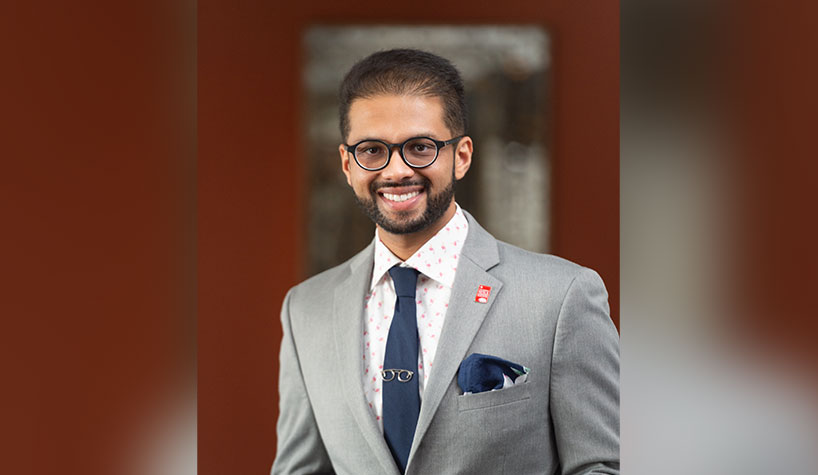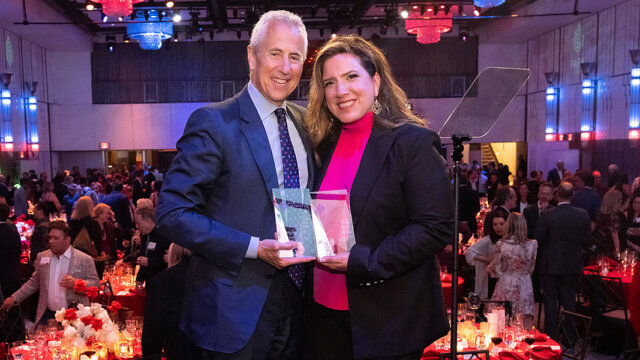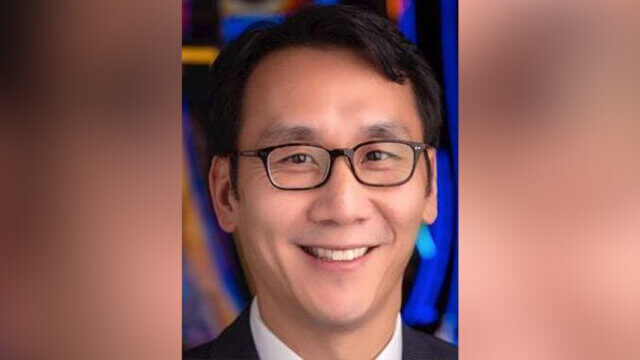SACRAMENTO, CA—In 2020, Bijal Patel, VP of Coast Redwood Hospitality, became the youngest chairman of the California Hotel & Lodging Association. After being reelected in 2021, he became the first chairman in the long history of the organization to serve back-to-back terms. Patel connected with Hotel Business to discuss the challenges of 2020 and what lies ahead for him and the CHLA in the coming year.
How does it feel to be the first CHLA chairman ever to serve in back-to-back years? The CHLA board members have either given me a great vote of confidence—or they have sentenced me to a very severe punishment!
To be completely serious, this is both a high honor and a huge responsibility, so I am humbled but also energized. Our industry was paralyzed by the COVID pandemic in March—about 100 days into my chairmanship. The impact was immediate and devastating.
At CHLA, we pivoted from any previous plans and priorities to focus completely on helping our members survive. We were relentless in working with brands and with government entities at the national, state and local levels to find ways over, under, around and through the lockdown restrictions and economic shortfalls. And we made meaningful, measurable progress.
A second term as chairman of CHLA allows me to help maintain this momentum. Moving ahead will be slow, but it can be steady—especially if we practice fortitude. Some people may prefer words like courage, bravery, resistance, stamina, endurance—or just plain guts. All these words have the same thing in common. They represent the toughness of spirit, strength of mind and firmness of purpose that hoteliers will need to survive in 2021, economically and emotionally.
When times are tough, it’s tough to stay tough, and positive thinking isn’t enough. That’s why CHLA will continue being what I call an “actionist.” We will aggressively pursue answers for our members and our industry. And I’m confident that we will achieve important, valuable new milestones in the coming year.
It was historic in November of 2019 when I became the youngest chairman in CHLA history. Now it’s historic again as I become the first chairman to serve two consecutive terms. Yes, we are ending 2020 and I’m concluding my first term, but we’re also starting a new year and a new chapter for hospitality. For me, the finish line is just the beginning.
What were your major accomplishments as chairman in your first term? As you might expect, almost all of our initiatives were COVID-related as CHLA battled hard for the right of hoteliers and other small businesses to earn a living in a safe, responsible way. The year was overwhelming, but so was the response by CHLA on behalf of members. For example:
- We launched the comprehensive Clean + Safe hygiene program in April, which was the first reopening plan developed by any state hotel association in the country and it remains among the most ambitious.
- We introduced meeting guidelines in October as an essential step toward restoring confidence for the public and the government, while also hoping to restore meeting revenue for owners and to convince our state government to start allowing meetings. Unfortunately, today California is the only state that doesn’t permit meetings under COVID restrictions.
- We took legal action to challenge hotel reopening criteria by the city of San Francisco that were unreasonably restrictive.
- We worked proactively with legislators and regulators in Sacramento, as well as in numerous local jurisdictions throughout the state, to expedite the safe re-opening of businesses.
- We provided emergency pandemic housing for cruise ship travelers, for first responders and for other affected audiences, such as the homeless through the state’s Project Roomkey and Project Homekey.
- We guided members in their search for loan assistance, notably the SBAs Paycheck Protection Program.
- We were part of a pro-business coalition that convinced the governor to veto a bill that would have imposed unrealistic mandates on employers, such as hotel owners for rehiring employees who have been laid off due to COVID.
- We aggressively fought Proposition 15 on the November election ballot. That was a huge economic win because it prevents California’s business property taxes from skyrocketing, especially in these challenging times.
Clearly, a lot of work flowed through CHLA every day of every week of 2020. The staff and the board learned to be very good at swimming very fast, and I salute them all. Together, we didn’t just talk tough, we stood strong. Our goal was to keep government from overreaching and overreacting—from turning our freedom into ‘free-dumb’—and in many ways, we succeeded spectacularly. And one of the most important achievements was to establish CHLA’s presence in Sacramento as an ongoing force on behalf of hospitality. The long-term ramifications are very significant.
The pandemic continues to spike in California, and restrictions are still in place. How is the CHLA helping its members at this trying time? CHLA is the conduit between hoteliers and regulatory entities, notably the Governor’s office and the state Department of Public Health. We work to get government decisions made that are as favorable as possible to hoteliers, then we give our members the guidance they need to operate safely and legally.
Sometimes we aggressively advocate for initiatives, while sometimes we fiercely defend the legal and economic welfare of hoteliers. And our role is to do all this at the speed of business instead of the speed of bureaucracy.
Right now, there is a lot of confusion among hoteliers because of changing guidelines and because of different guidelines in different parts of the state. Another emerging issue is that hotels have strictly been following lockdown protocols, but short-term rentals—notably shared accommodations—have not. That’s a dangerous inconsistency at a time that our industry is trying to build tourism by reassuring travelers about the cleanliness of lodging properties.
CHLA intends to protect both tourism and travelers by advocating with the state Department of Public Health, as well as with appropriate local health agencies. To date, CHLA’s close cooperation with the government on behalf of members has paid off big time. Consider this: there has been absolutely no breakout of COVID anywhere in California among hotel guests or staff. We’re very, very proud of this because it’s tangible proof that hotels can reopen to serve our communities in a smart, safe way. And reopening hotels ASAP is among the top goals for CHLA, even though ASAP sometimes doesn’t seem fast enough.
What are the biggest challenges to move California hoteliers (and all U.S. owners) beyond COVID in 2021? I believe hoteliers have four main hurdles to overcome as we try to recover economically from COVID.
- More relief under the CARES Act. Hoteliers are in a financial disaster, with occupancy down by 70%, 80% or more. Federal legislation such as the PPP program was a useful start, but getting funds was slow, complicated and riddled with fraud. Hotels need relief immediately through a variety of new loan and cash options.
- Rebound of meeting revenue. Right now, California is the only state that still doesn’t allow meetings of any kind—most states already allow meetings of up to 50 people. While the amount of meeting business will vary from hotel to hotel, this category of revenue is huge for our industry. And as we bring back meetings, we can bring back employees and we can bring back revenue to partner vendors such as banquet teams, A/V providers, restaurants, airlines and more.
- Vaccination for employee workers. Hoteliers may not be considered essential workers, but in many ways we are because we provide an essential service. And we have repeatedly stepped up during COVID to house travelers who are at risk, mitigated or require quarantine. We keep people productive, comfortable and safe while they’re away from home, and we can do it more widely, more effectively, and even more safely if more hotel workers are properly vaccinated.
- Marketing of safety and cleanliness. Americans want to return to “normal”—to work, to eat out, to shop, and especially to travel for both business and leisure. But we want to do these things in a way that’s safe and smart and doesn’t undo all the sacrifices we’ve made. I have long believed that the hotel industry practiced exceptionally high standards of safety and cleanliness. However, in the past, those qualities have been almost invisible to guests because we have been so discreet in promoting them. With COVID, we have new hygiene procedures, but we’re also talking more about the ones we’ve been doing for years. This transparency is desirable because it underscores our commitment to cleanliness and safety, a commitment that will help us with guests during the return to normal.
At the end of your time as chairman, what would you like to have accomplished? My style is to be a “glass half-full-” rather than a “glass half-empty-type” of person, so I tend to be optimistic and ambitious in my goals. Still, I believe I’m being realistic in setting these three objectives for myself and for CHLA in 2021:
- Bring back to work the face of our industry. In California, more than 80,000 hotel employees have been laid off and about half-a-million tourism jobs have been lost. These are our industry’s front-line workers, our first responders. I want to see these people where they belong, interacting face-to-face with travelers, even if that’s six feet away.
- Make hotel stays and meetings happen again. This coming year will be when our country expects to make medical progress with vaccines, so that means it’s the year our industry can expect to make economic progress as people return to travel. That’s especially important in California convention cities like Los Angeles, San Francisco and San Diego, where we have wonderful properties that have been absolutely devastated.
- Return to the three original priorities I planned for my first term. First, to attract more young people and women to hospitality as a career. Second, to continue and enhance our fight against ADA nuisance lawsuits. And third, to expand workplace safety.
This year taught us that our success as hoteliers is not determined by the events that we expect. To the contrary, our business survival and success is largely defined by events that we do not expect, and by how we handle those events. So, I hesitate to make predictions about 2021 because there are only two types of predictions—those that are lucky and those that are wrong. While I can’t predict, I can hope and I can promise.
I hope that the end of 2020 is the start of better times for our country and our industry. And I promise that, as chairman of CHLA in 2021, I will always do my very best for our members and our industry.




